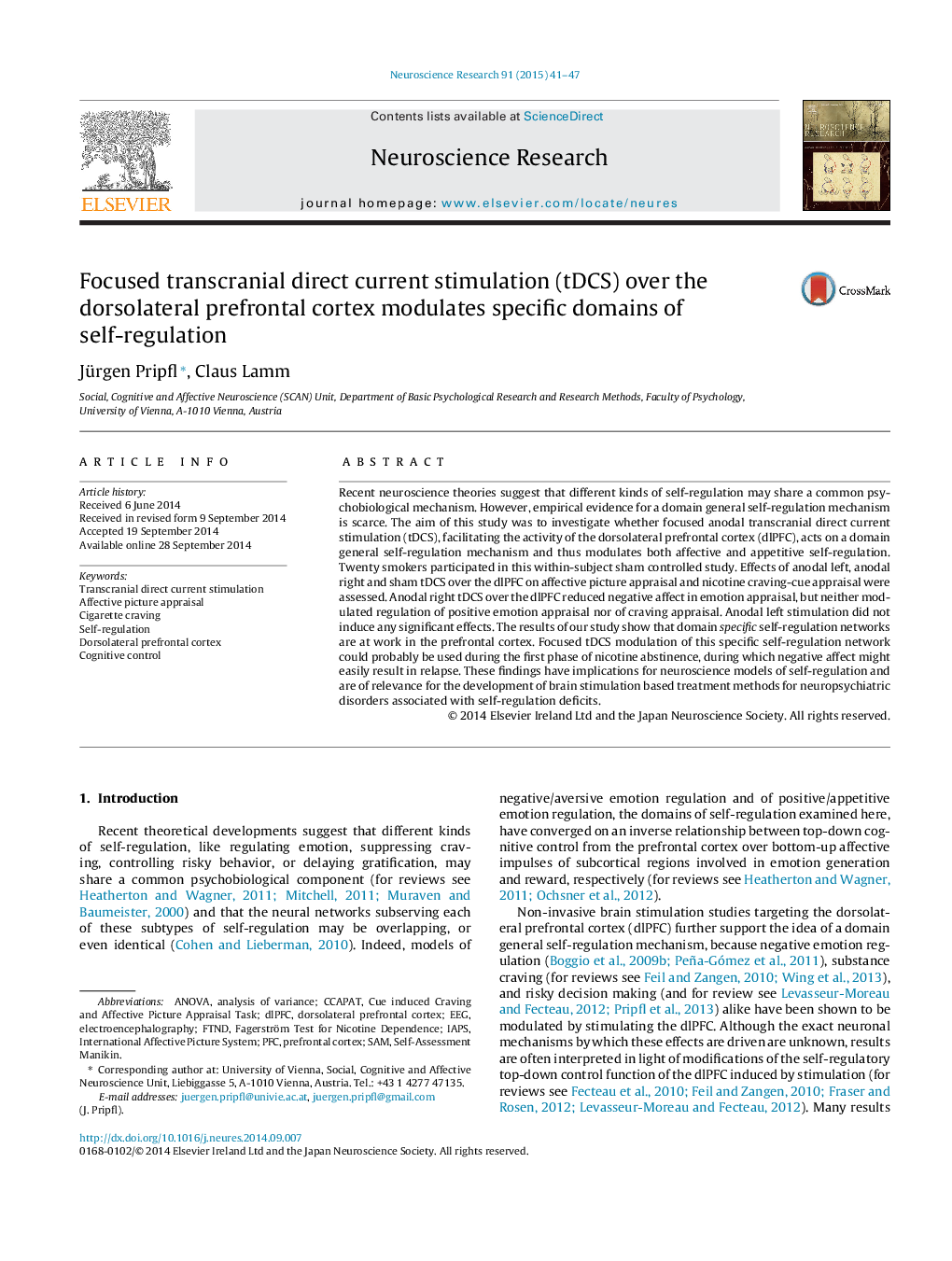| Article ID | Journal | Published Year | Pages | File Type |
|---|---|---|---|---|
| 4351374 | Neuroscience Research | 2015 | 7 Pages |
Abstract
Recent neuroscience theories suggest that different kinds of self-regulation may share a common psychobiological mechanism. However, empirical evidence for a domain general self-regulation mechanism is scarce. The aim of this study was to investigate whether focused anodal transcranial direct current stimulation (tDCS), facilitating the activity of the dorsolateral prefrontal cortex (dlPFC), acts on a domain general self-regulation mechanism and thus modulates both affective and appetitive self-regulation. Twenty smokers participated in this within-subject sham controlled study. Effects of anodal left, anodal right and sham tDCS over the dlPFC on affective picture appraisal and nicotine craving-cue appraisal were assessed. Anodal right tDCS over the dlPFC reduced negative affect in emotion appraisal, but neither modulated regulation of positive emotion appraisal nor of craving appraisal. Anodal left stimulation did not induce any significant effects. The results of our study show that domain specific self-regulation networks are at work in the prefrontal cortex. Focused tDCS modulation of this specific self-regulation network could probably be used during the first phase of nicotine abstinence, during which negative affect might easily result in relapse. These findings have implications for neuroscience models of self-regulation and are of relevance for the development of brain stimulation based treatment methods for neuropsychiatric disorders associated with self-regulation deficits.
Keywords
FTNDPFCIAPSSAMDLPFCElectroencephalographyTranscranial direct current stimulationanalysis of varianceANOVAFagerstrom Test for Nicotine DependenceSelf-Assessment ManikinSelf-regulationInternational Affective Picture Systemprefrontal cortexdorsolateral prefrontal cortexEEGCigarette cravingCognitive control
Related Topics
Life Sciences
Neuroscience
Neuroscience (General)
Authors
Jürgen Pripfl, Claus Lamm,
